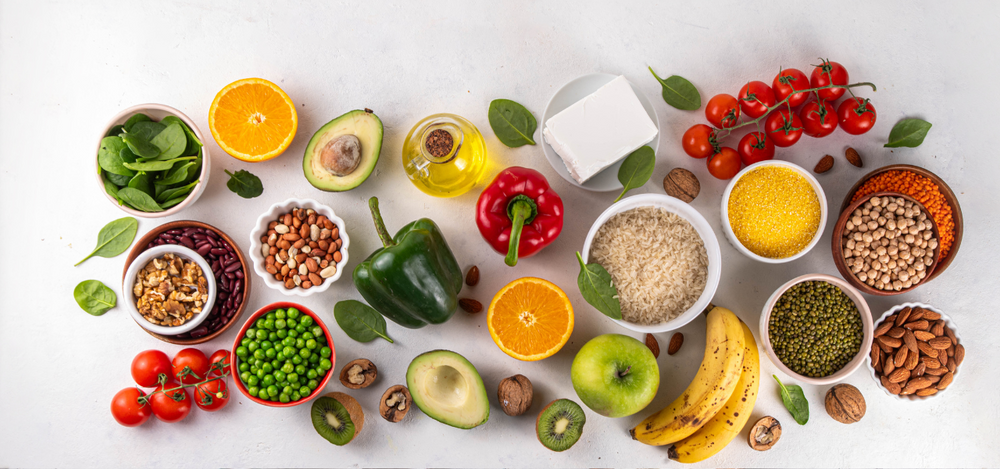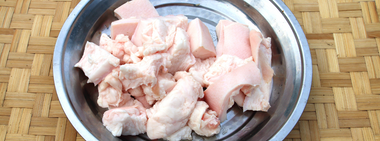Plant Sterols 101

Plant sterols, also known as phytosterols, are compounds found in all whole plant-based foods. Structurally, they resemble cholesterol and compete with other cholesterol molecules for absorption in the intestinal tract. However, because their molecular structure is unique, plant sterols are very poorly absorbed themselves. Therefore, their net effect is reduction of overall cholesterol absorption during digestion. High plant sterol intake is one reason why whole food vegans and vegetarians tend to display significantly lower circulating cholesterol levels.
Why We Love Plant Sterols
Plant sterols can be very beneficial in reducing the levels of circulating cholesterol because they interfere with not only dietary cholesterol absorption but also bile cholesterol re-absorption. Bile is released by the liver every time we eat and is essential for breaking down food. It’s also very cholesterol rich and is one of the things we use circulating LDL cholesterol to make. By interfering with bile re-absorption, plant sterols compel the body to re-direct circulating LDL cholesterol towards bile production, thus lowering overall cholesterol levels in the bloodstream.
One important point: Plant sterols are effective for lowering circulating cholesterol levels only when consumed with food, as bile needs to be present in the digestive system for them to have their biggest impact.
Foods Rich in Plant Sterols
Nuts, seeds, and oats are good sources of plant sterols. Step One Foods' products are specially formulated to include 1 gram of plant sterols per serving, making them an effective addition to a cholesterol-lowering diet. Multiple studies have shown that taking in around 2 grams of plant sterols per day is required to achieve clinically meaningful cholesterol reductions (hence the recommendation to eat 2 servings of Step One each day if your health goal is cholesterol reduction).
Safety and Efficacy
Plant sterols are well-known for their ability to lower LDL cholesterol and are backed by voluminous safety data. That’s why various cholesterol management guidelines encourage plant sterol intake as a component of therapy. However, because plant sterols are similar in structure to our cholestrol and some plant sterols do get absorbed, you might be wondering whether plant sterols could inadvertently contribute to plaque formation.
Here are the reasons I don’t worry about this - and why you shouldn’t either: Circulating plant sterol levels are very low to begin with. And studies have shown that the increase in phytosterol levels from consuming phytosterol-enriched foods is rather modest, only around 35% (yielding a very small absolute increase in circulating levels). For phytosterols to pose a significant risk, they would not only need to be 20-40 times more toxic than LDL cholesterol, but their levels would also need to be linearly related to risk, all of which is very unlikely. The most obvious argument against these concerns is that whole food vegans and vegetarians - who natrually display the highest circulating plant sterol levels among us - also happen to experience the lowest rates of heart disease and heart events.
Plus risk is often not linear or strictly proportional. For example, if a train carrying 500 passengers traveling at 100 miles per hour crashes, it’s likely all 500 passengers will die. However, that does not mean that a crash involving a train carrying 500 passengers but traveling at 1 mile per hour will yield 5 casualties. Or that one traveling at 10 miles per hour will automatically result in 50.
Having said all that, there does exist an EXTREMELY rare genetic disease called “phytosterolemia”, also referred to as “sitosterolemia”. It’s so rare that only about 110 case reports have ever been published about it world wide. Estimates have run as high as 1/50,000 people being affected, but to put that in perspective, you’d be 3 times more likely to get struck by lightning during your lifetime than to have this condition. Individuals with phytosterolemia freely absorb phytosterols - as well as all cholesterol in general - leading to high cholesterol levels and elevated heart disease risk. And phytosterol molecules can indeed be found within arterial plaques in such individuals. However, even under this extreme scenario, it is not clear whether it’s the plant sterols themselves or other cholesterol molecules that are the biggest contributors to plaque formation and heart disease risk.
Bottom line: In the absence of phytosterolemia, extensive research and observational studies confirm that plant sterols are safe and effective.
Special Considerations
Plant sterols can slightly reduce the absorption of fat-soluble vitamins and carotenoids, but this effect is minimal and can be countered by consuming more fruits and vegetables (which is good for us anyways).
The effects of deliberate cholesterol lowering by any means have not - and likely never will be - studied in infants and pregnant/lactating women. Therefore, plant sterol supplements (and statins, and PCSK9 inhibitors, and ezetimibe, and bempedoic acid, and red yeast rice…) are not recommended in these groups. That's not to imply they are dangerous - it's simply that there is no data on which to base recommendations on. However - and regardless of life stage - increasing intake of naturally occurring plant sterols through the consumption of whole plant-based foods is safe and encouraged for everyone.
Conclusion
With a strong safety profile and proven efficacy, plant sterols are a powerful tool in managing and lowering elevated cholesterol readings. They're endorsed by both the American College of Cardiology and the National Lipid Association for their cholesterol-lowering benefits, especially for those who haven't reached their cholesterol goals despite maximum tolerated statin doses. Step One Foods offers convenient and effective options to incorporate plant sterols into your diet, helping you take control of your cholesterol readings and your heart’s health - while helping minimize exposure to drugs.

Tested & Proven Results.
- Cardiologist formulated
- Supported by over 500 publications
- Clinically-proven, in a double-blind randomized trial with Mayo Clinic and The University of Manitoba
80% of participants lowered their cholesterol in just 30 days. With just two servings per day, Step One Foods offers a proven-effective way to naturally lower LDL (bad) cholesterol.
Get heart health tips and articles like this, delivered right to your email.
New articles every week.
You may also like...

The Next Super Food: How Pecans Help Lower Cholesterol

You don’t need to avoid foods with cholesterol…except for these



